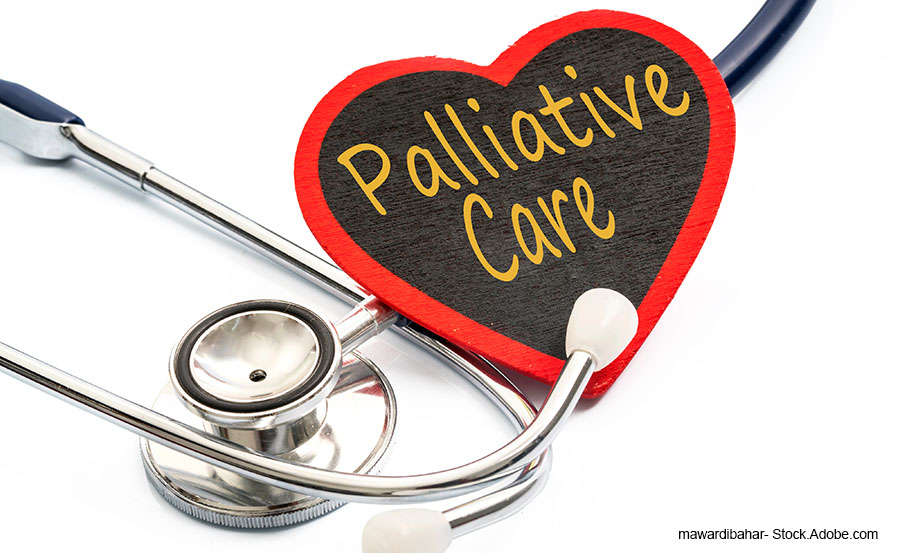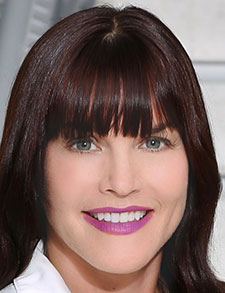 For Elizabeth Gundersen, MD, FAAHPM, FHM, chair of SHM’s Palliative Care Special Interest Group, caring for patients at the end of their lives is a labor of love.
For Elizabeth Gundersen, MD, FAAHPM, FHM, chair of SHM’s Palliative Care Special Interest Group, caring for patients at the end of their lives is a labor of love.
But, in death just like life, love needs work.

Dr. Gundersen
“I do a lot of teaching, and I do a lot of teaching to medical students about what palliative care is,” said Dr. Gundersen, associate professor of hospice and palliative medicine at the University of Colorado School of Medicine in Aurora. “I was explaining it one day to a group of medical students, and I said, oh, well, we really try to see the patient as a person, try to keep them at the center of their care and understand what their goals are and what is valuable to them, and we focus on communication and symptom management and improving their quality of life. And this one medical student looked at me and said, “I don’t get it.” And I explained it again, and he said, “I don’t get it. Isn’t that all medicine?” And I said, “Yeah, it should be.”
Dr. Gundersen’s path to palliative care came before medical education focused more on communication and caring for patients with serious illnesses.
“We didn’t get a lot of training about pain or other symptom management,” she said. “And so, of course, when we’re out practicing, we’re learning on the job, so to speak. And, when you are having conversations with patients and families about the fact that they’re seriously ill, or about the fact that they’re dying, those are some of the hardest conversations out there.
“And if you’ve not been trained in it, it’s not going to be easy for you. You’re going to flounder and it’s going to feel hard. And because of that, this becomes an area that’s tough to embrace.”
That, however, is a big part of the SIG’s beauty, to Dr. Gundersen.
“Our hope is that we can impart these skills to every hospitalist,” she said. “And believe me, I see a lot of hospitalists who do a wonderful job taking care of patients who are seriously ill or near the end of life. I’m not saying that palliative medicine-trained people are the only ones who can do this well. But there are other physicians who I see struggling with it.
“So, I agree wholeheartedly that we offer something that benefits all comers. We talk about “primary palliative care” skills as skills that every hospitalist should have. And not just for the patients, but I think if you’re a hospitalist and you feel more comfortable and skilled in these settings, taking care of seriously ill patients and patients at the end of life, it helps you feel good about the care you’re providing, too.”
Dr. Gundersen notes that unlike some more diagnostic or treatment skills—what’s the best anticoagulant to use, or what tests should be ordered—palliative care is often more about a framework than specific advice.
“We’re presenting a scaffolding,” she said. “People talk about the art and science of medicine, and this is one of those cases because even, for instance, with communication, we have useful phrases to use and useful approaches for these conversations, but you can say something to one patient or one family member that lands really well, and then you can say the same thing to a different patient or family, and it lands really poorly. The patient or family member might get upset or angry. Part of this is also learning how to be flexible and fluid in these situations. I feel that’s a skill in and of itself, as well.”
Another skill set in palliative care that is a bit nonintuitive to healthcare—where mistakes can be deadly—is recognizing and verbalizing missteps.
“I always tell people when you’re learning these primary palliative care skills, part of it is having the skills, and part of it is having a certain orientation,” Dr. Gundersen said. “Where you are willing to show up as a human and connect with patients on a very human level. So, it’s not uncommon for us, during our conversations with patients and families, to stop mid-sentence, and say something like, you know what, this isn’t coming out of my mouth the right way. Let me start over.”
Dr. Gundersen believes that the future of palliative care for hospitalists is well-positioned. The SIG will be holding elections for new leaders, and the past year has seen a series of webinars that helped provide resources. She also routinely promotes the annual mini track at SHM’s Converge as another chance for all hospital medicine practitioners to learn more about the specialty.
“This is just good medicine,” Dr. Gundersen said. “Serious illness care is just good medicine. This, to me, is bread-and-butter hospitalist work, because that is the nature of our roles. We are meeting patients in the hospital at a time when they are the most vulnerable, and there’s no way to separate this from our daily work.”
Richard Quinn is a freelance writer in New Jersey.